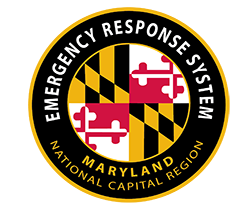As COVID-19 cases began to rise in early 2020, the world shut down in hopes of slowing the spread of this unknown and deadly infection. Non-essential workers worldwide transitioned to working from home, an option not available for essential workers within the Homeland Security Enterprise. Doctors and nurses continued to work at inundated hospitals, police and firefighters never stopped responding to emergency calls, and other essential workers continued to do their job while entering an even more dangerous and unknown situation. Additionally, leadership training has become an important aspect to personnel recruitment and retention, following the massive resignations and layoffs following the COVID-19 shutdown.
In the wake of the COVID-19 pandemic, many public safety officials expressed feeling of being burnt out or overworked. Due to these ongoing issues, many organizations within the Homeland Security Enterprise began reevaluating staff training and retention strategies. Leadership trainings have recently been utilized to ensure that an organization’s human capital is supported in any way possible. Organizations such as the United States Capitol Police and the United States Environmental Protection Agency have created a Human Capital Strategic Plan to ensure all workforce members are utilized effectively and supervisors are provided with leadership training. These leadership classes are offered online, allowing participants to attend without leaving their desks. Such courses have proved to be beneficial, including a master class titled Leadership and Change Management featured in the FireRescue1 Academy. Maryland Emergency Response System (MDERS) continues to work with its stakeholder representatives to ensure the courses offered benefit the stakeholder, agency, and community.
To further support their personnel, many public safety agencies moved to a hybrid learning or meeting style once COVID-19 restrictions began to lift. Out of necessity, some ICS courses are offered online and in person. State Emergency Management organizations, such as Oklahoma, Florida, the District of Columbia, and California, have created online curricula for G-300: Intermediate ICS for Expanding Incidents & G-400: Advanced ICS, which were hosted exclusively in person prior the pandemic. Additionally, programs such as the Texas A&M Engineering Extension Service’s (TEEX) Active Attack Event Response Leadership course, which was previously exclusively taught in person, can now be accessed completed entirely online. MDERS is constantly researching different options for courses which can be provided to its stakeholders in a fully online or hybrid format. The Training and Exercise Team at MDERS has coordinated courses from the National Preparedness Leadership Institute, and the National Association of Counties High Performance Leadership Academy, which are offered online. Additionally, the National Tactical Officers Association online course, teaches police personnel on the legalities and challenges faced when responding to suicidal subjects.
The world has changed more quickly and abruptly than imagined, and due to these changes, the workforce and training methods need to evolve. Leaders are adapting the way they lead, and trainings are adjusting to ensure they are accessible to everyone safely. However, whether it is a hybrid learning model or all online, some adjustments must be made to ensure their longevity. MDERS has expanded their offering to stakeholders and is constantly looking to improve the learning experience and will continue to search for classes that will help the leaders of the Maryland-National Capital Region.


